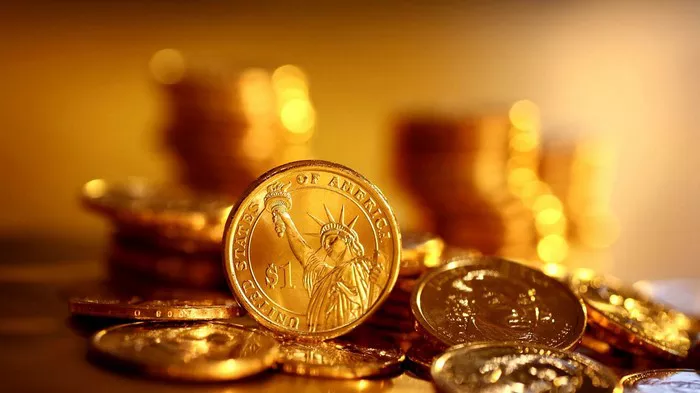Gold prices surged to unprecedented levels and bond markets saw significant gains on Wednesday, driven by growing expectations of global interest rate cuts. Meanwhile, Taiwan stocks experienced a decline following comments by U.S. presidential candidate Donald Trump, casting doubts on his commitment to the island’s defense.
The S&P 500 reached new peaks recently, with Asian futures markets showing stability. MSCI’s broad index of Asia-Pacific shares outside Japan remained flat, while Japan’s Nikkei edged up by 0.1%.
In Taiwan, semiconductor giant TSMC saw a 2% drop, resulting in nearly $16 billion wiped off its market capitalization, after Trump hinted at reconsidering U.S. support in an interview with Bloomberg Businessweek. Trump suggested that Taiwan should bear the cost of U.S. protection, causing uncertainty among investors.
Trump’s choice of J.D. Vance, known for his tough stance on trade issues, as his running mate further reinforced concerns over his policies towards China, affecting Chinese stocks for a second consecutive day.
The Taiwan dollar slipped to a two-week low, while the Chinese yuan stabilized at 7.2676 per dollar.
Brent Donnelly, president at Spectra Markets, commented, “It is increasingly clear that a Trump presidency should support the USD in the near term,” citing potential tariffs and a higher budget deficit as factors.
Elsewhere in Asia, New Zealand shares reached their highest levels since March 2022 after data showed a slowdown in inflation. However, the rates market softened, and the currency strengthened due to persistent domestically driven inflation.
U.S. Treasury yields held steady after hitting four-month lows, following Federal Reserve Chair Jerome Powell’s remarks that recent declines in inflation provide confidence that consumer prices are moderating.
Fed funds futures now fully price in a U.S. rate cut for September, followed by two more cuts by January 2025.
Gold prices surged despite a strong dollar, breaching resistance levels to reach $2,478 per ounce, highlighting its resilience amidst market conditions. Commonwealth Bank of Australia’s commodity strategist Vivek Dhar noted, “Gold’s ability to find support in any market condition this year is notable.”
The Japanese yen weakened marginally to 158.51 per dollar, despite recent interventions from Japanese authorities to curb its decline from a 38-year low earlier in July.
The euro remained steady at $1.0925. Oil prices dipped slightly on signs of weakening demand from China, with Brent crude futures down 13 cents at $83.60 a barrel and U.S. crude futures also 13 cents lower at $80.63 a barrel.
Later in the day, attention will shift to British inflation data, particularly services inflation expected to show a robust 5.6% increase year-on-year in June.


